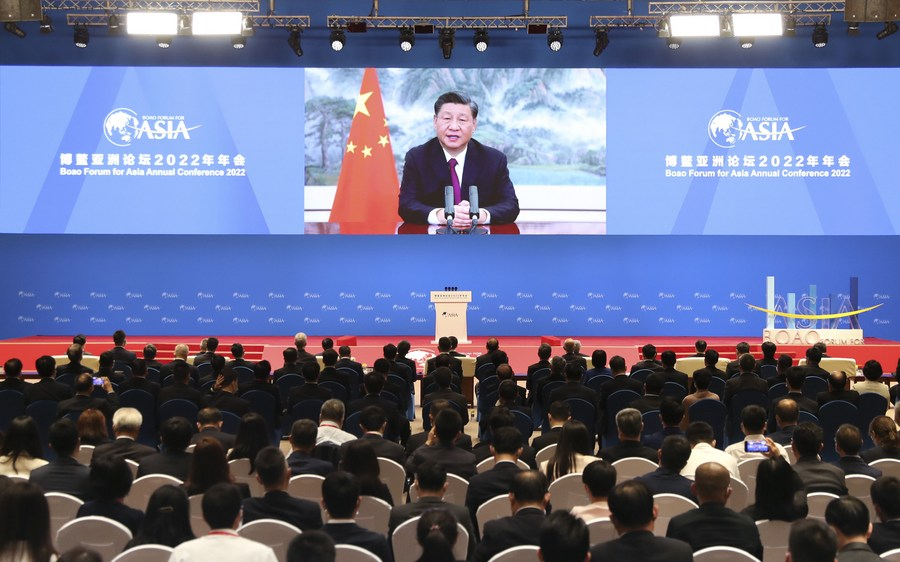The Global Security Initiative by China.
~Preet

Chinese President Xi Jinping recently proposed a new Global Security Initiative (GSI). The GSI seeks to oppose the United States' Indo-Pacific strategy and the Quad (India, US, Australia, Japan grouping). China, on the other hand, did not give much clarity or explanation regarding the planned global security programme. With escalating challenges from unilateralism, hegemony, and power politics, as well as growing deficiencies in peace, security, trust, and governance, humanity is confronted with more intractable issues and security concerns. As a result, China maintained that the Global Security Initiative is intended to safeguard the notion of "indivisible security." According to the notion of "indivisible security," no country may increase its own security at the expense of others.
GSI advocates for "shared, comprehensive, cooperative, and sustainable" security, as well as the development of an Asian security paradigm based on mutual respect, openness, and integration. This appears to refer to Western sanctions while opposing the use of unilateral sanctions and long-arm jurisdiction. The 'Indo-Pacific' policy of dividing the area and creating a 'new Cold War,' as well as the use of military alliances to form a 'Asian counterpart of the North Atlantic Treaty Organization' (NATO). According to China, the Quad grouping was akin to the "Five Eyes" intelligence partnership encompassing Australia, New Zealand, Canada, the United States, and the United Kingdom, as well as the AUKUS agreement, as a major component in what he called the United States' efforts to construct a "Asian NATO."
The Quad's members have rejected the concept that it is an Asian NATO or a military alliance, instead emphasising the Quad's broad-based collaboration, including vaccinations and technology. Typically, Chinese criticism of unilateralism, hegemony, and double standards is directed towards the United States. China's increased advancements in the Pacific may be tied to the Belt and Road Initiative's slowdown as a result of the Ukraine war.
For numerous decades, the United States viewed China's rapid growth under the more enlightened dictatorship of Deng Xiaoping and his successors favourably. However, under President Xi Jinping, China has progressed from moderate to severe authoritarianism. There is now a president-for-life with a personality cult on the rise. To counter increasing Chinese aggression, the US has implemented a 'pivot to Asia policy.' Has established a Quad effort as well as an Indo-Pacific storyline. Most recently, the United States advocated expanding the G7 to G-11 without involving China. The US and its allies have sharply criticised China's actions in the South China Sea, first through land reclamation and subsequently by creating artificial islands to expand extraterritorial claim. With its all-encompassing Belt and Road Initiative and institutions such as Asia infrastructure investment bank, Contingency Reserve Agreement (CRA) of New Development Bank, China has emerged with alternative governance mechanisms to the US-dominated International Monetary Fund, World Bank, and World Trade Organization.
India is a rising global force, and both the US and China wanted to entice India into their respective camps, stressing its significance. According to US foreign policy analysts, India is a natural US ally in the New Cold War. On the other side, China's Ambassador in India has proposed creating "a new chapter together" with "a shared future for mankind." Under the auspices of Vasudhaiva Kutumbakam, India may promote new multilateralism that is based on changing both the economic system and societal conduct in order to achieve fair and sustainable development. India must engage in more aggressive diplomacy with global powers in order for the Asian Century to be characterised in terms of peaceful coexistence and global interest. India should recognise that national security increasingly depends on technical dominance in Artificial Intelligence (AI), cyber, and space, rather than expensive capital equipment. As a result, India should become self-sufficient in essential technology.
Comments
Post a Comment